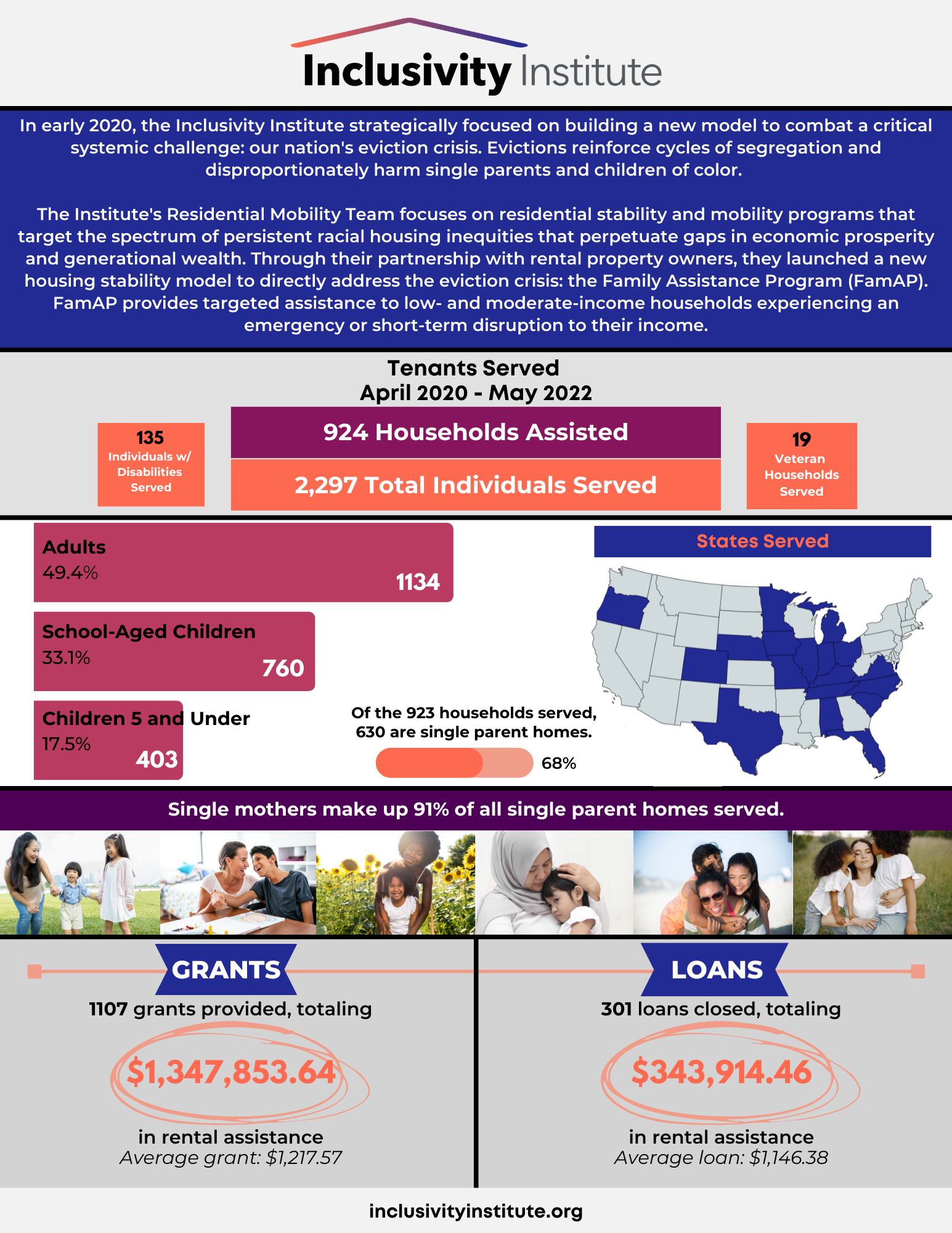
The Institute worked to create an innovative new rental assistance program model aimed at addressing housing inequities and instability among low- and moderate-income renter households and reducing our nation’s eviction crisis.
In early 2020, the Inclusivity Institute began envisioning an innovative new rental assistance model that would aim to address housing inequities and instability among low and moderate income renter households, taking direct action to help reduce our nation’s eviction crisis.
By April 2020, the Family Assistance Program (FamAP) was launched. FamAP provides targeted 1-2 month rental assistance to households experiencing an emergency or short-term disruption to their income. Through charitable loans and grant resources, we are able to intervene prior to eviction filings to help stabilize the family and prevent further setbacks.
The program was designed to for a crisis that existed long before the pandemic, so we will continue working to analyze outcomes and improve our effectiveness in preventing the many damaging consequences that come from the trauma that housing instability can have on individuals and families with children.
Importantly, we are eager to scale up this program with new partners and present our model to lawmakers and funders to help build support. Each of the advocates, partners, or potential partners we have met with has expressed enthusiasm about this model and its potential for impact locally and nationally.
Downloads:
Read brief one pagers on the need for the program, how it works and early outcomes.
Download more data detailing on the impact of evictions.

.png)
Testimonials
Testimonials received from FamAP recipients
.png)
Why Eviction Matters
“Eviction causes a family to lose their home. They often are also expelled from their community and their children have to switch schools. Families regularly lose their possessions, too, which are piled on the sidewalk or placed in storage, only to be reclaimed after paying a fee. A legal eviction comes with a court record, which can prevent families from relocating to decent housing in a safe neighborhood, because many landlords screen for recent evictions. Studies also show that eviction causes job loss, as the stressful and drawn-out process of being forcibly expelled from a home causes people to make mistakes at work and lose their job. Eviction also has been shown to affect people's mental health: one study found that mothers who experienced eviction reported higher rates of depression two years after their move. The evidence strongly indicates that eviction is not just a condition of poverty, it is a cause of it.” —Eviction Lab
Interested in learning more about this program, feel free to contact one the staff members on our Residential Equity Team: Shay or Vanessa
famap@inclusivityinstitute.org
